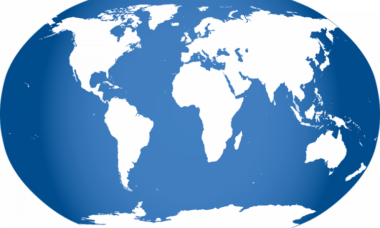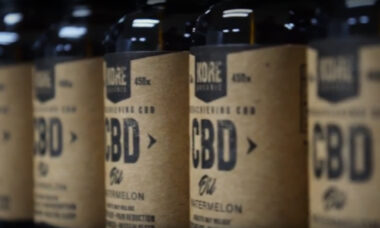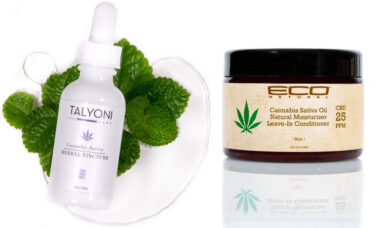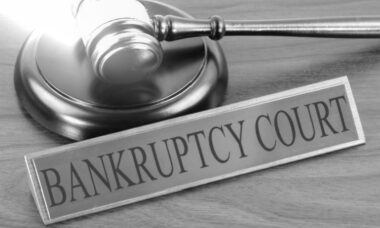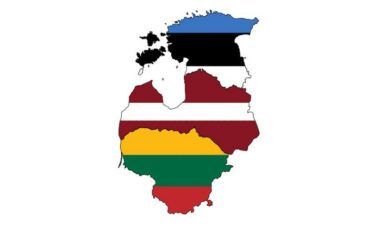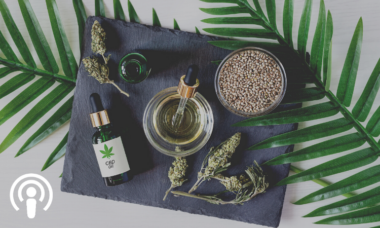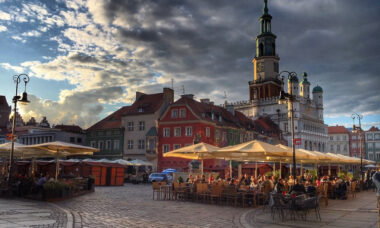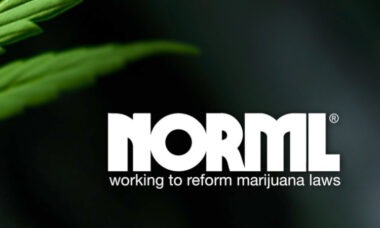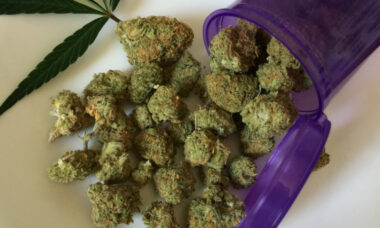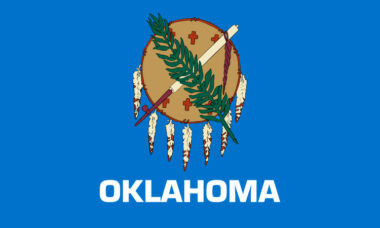The UK Food Standards Agency (FSA) has updated industry insiders on its preparations for a potentially separate system of novel food approval as its 31st March 2021 deadline draws nearer
This week’s regulatory news in brief brings updates from Belgium, the Czech Republic, Germany, Italy, Ireland, Netherlands, Serbia, Mexico, the US, Australia, China, Israel, Malawi, Nepal, South Korea and St. Lucia
Hemp flower has become increasingly available in Spanish tobacconists (estancos) and even on corner newsstands during the COVID-19 crisis – even thought its sale is not permitted under Spanish law
This report provides an up-to-date analysis of the current regulatory regime for CBD and hemp-related products in the US state of Florida
This week’s regulatory news in brief brings updates from the Czech Republic, France, Germany, Italy, Luxembourg, the Netherlands, Portual, Switzerland, the US, China and Peru
The suspension of EasyJoint’s commercial activities and website pending a trial in the Italian province of Parma demonstrates that enforcement authorities intend to continue to police CBD retailers. In particular, it seems the Parma prosecutor’s office took exception to the marketing and sale of CBD hemp flowers by EasyJoint. This has significant implications as flowers remain one of the […]
Zimbabwe has changed tack, allowing investors to hold 100% of medicinal cannabis licences in order to improve competiveness of the sector both regionally and globally
The public prosecutor’s office in Parma has suspended all commercial operations of Italy’s leading CBD company, EasyJoint, pending trial on narcotics charges
This week’s regulatory news in brief brings updates from Belgium, France, Germany, Switzerland, the US, Israel, New Zealand and Thailand
Countries in South America are becoming increasingly important markets for CBD, as the ink dries on a deal to distribute medical cannabis products in Brazil, where a change in regulatory policy has opened up trade
Jilin province is the third province in China to be actively working on hemp regulation. This report offers an analysis on the potential upcoming regulations, looking at all aspects from imports to cultivation
Businesses in the US should be aware of ongoing proceedings in bankruptcy courts related to companies that have been involved in cannabis. Bankruptcy filings and proceedings are unavailable to these companies as it remains an illegal substance at the federal level. This means that businesses forming contracts with companies – even if those companies are only tangentially […]
This week’s regulatory news in brief brings updates from Bosnia and Herzegovina, Czech republic, Germany, Italy, the US, China and Latin America
CBD food, supplement and cosmetic products could be sold under a clear legal framework in the US state of Texas as early as July under a proposed set of regulations
The regulation of CBD, THC and cannabis has been liberalised in South Africa – at the very moment when a year-long trial period was due to end
A $77m deal with creditors to purchase GenCanna as a going concern looks unlikely to be the final step in an ongoing bankruptcy drama surrounding one of the US’s largest hemp processing companies
This week’s regulatory news in brief brings updates from Albania, the US, the Seychelles and South Africa
The US Food and Drug Administration (FDA) has published an announcement of a product recall made voluntarily by a company after tests suggested the CBD oil contained too much lead
Our managing director, Tim Phillips, has been invited to participate in the Professionally Cannabis Podcast, which is aimed towards entrepreneurs, connoisseurs and those interested in the science behind the plant.
The US National Advertising Division (NAD) has criticised certain cosmetic and wellness products for not containing as much CBD as claimed on their packaging
A Canadian company part-owned by singer Bif Naked has run foul of Canada’s national health authority after suggesting its CBD products can help protect users from COVID-19
CBD companies in the US that deal in THC may not be able to take Chapter 11 bankruptcy – reorganisation as a going concern – leaving those reliant on the business and creditors with few other options
Industry leaders say it’s too soon to tell if a newly approved testing method will help address the instability US hemp farmers face due to strict regulations on crops that test above 0.3% THC
This report provides an overview of the current regulatory landscape for CBD and hemp in Hong Kong, including analysis of the restrictions relating to medical and recreational cannabis
Setting up studies as a pretext to allow the sales of hemp flowers in Germany is unlikely to succeed – but more are expected to try it as they look for ways to avoid legal action
This report offers our analysis of the regulatory regime in South Korea for CBD and related products, including extracts and finished products, their import and export, and medical and recreational cannabis
The French government’s ban on the importing of CBD products conflicts with European law on free movement of goods, EU advocate general Evgeni Tanchev says, in an opinion that could have EU-wide implications
This week’s regulatory news in brief brings updates from the EU, France, Czech Republic, Germany, the US, Israel and China
France cannot stop the import of full spectrum CBD oils extracted from any part of the plant, including flowers, from other EU member states UNLESS it has scientifically established that CBD has psychotropic or toxic effects, and considered whether there were no alternative less-burdensome regulation to an outright ban, according to the opinion from the advocate general of the CJEU, Evgeni Tanchev, that was published yesterday. […]
This report offers a thorough overview of the current regulatory regime for CBD in the Czech Republic, covering all aspects from extracts and finished products to medical and recreational cannabis
Local industry lobbyists in the Baltic states – Estonia, Latvia and Lithuania – are starting to push for further liberalisation of laws regarding the production of cannabis and hemp
The US state of Virginia has passed a bill to legalise CBD in foods. It expressly permits hemp extracts as food ingredients, as long as they don’t contain more than 0.3% THC
Our managing director, Tim Phillips, discussed international CBD opportunities during the USA CBD Expo in Las Vegas in February. He examined cannabidiol developments and highlighted the number of companies and brands present in the market nowadays, along with their efforts and predominant characteristics.
Chinese companies hoping to build up CBD businesses are growing increasingly frustrated by a lack of rulemaking, which is inhibiting the development of the domestic market
Despite reports, Poland’s Ministry of Health is not engaged in a dispute with the Ministry of Agriculture and Rural Development over the country’s limit of 0.2% THC in cultivated hemp
This short regulatory report provides an overview of the current GMP regulations for cosmetics being place on the market in the EU
Every state in the US is offering some sort of tax relief in response to the coronavirus pandemic, and many hemp and CBD companies may be eligible for such relief
This week’s regulatory news in brief brings updates from Germany, Iceland, Italy, the Netherlands, the US, Australia, Colombia Costa Rica, New Zealand and Thailand
A cannabinoid advocacy organisation has called for better rules on the growing of cannabis for research in the US – but declined to say exactly what it would like to see from regulators
This report offers an overview of the regulatory landscape in the US state of Virginia, including information on cultivation, finished products and import/export restrictions
A debate over what varieties of hemp can be grown in Florida has been shelved for at least this growing season as industry associations push forward with guidance on obtaining a state licence
The US Federal Trade Commission (FTC) has taken further steps in the fight against CBD brands making unsubstantiated medical claims, with one hit with a restraining order and injunction
Corporate interest in smokable hemp as a consumer product continues to grow in the US despite the mixed and sometimes unclear regulatory situation
US regulators should standardise the definition of hemp between states to reduce confusion, red tape and non-compliance for companies trading across state lines, says a coalition of interested groups
GMP certification means little and European CBD producers are being held back by rules limiting varieties that can be grown, new analysis from CBD-Intel reveals. Our report also explains how US and Swiss producers are at an advantage
This week’s regulatory news in brief brings updates from Belgium, France, Luxembourg, Poland, Switzerland the US, the UK, Canada, Australia, China and Thailand
In order to help you keep track of how all this is affecting the CBD industry around the world, all CBD-Intel’s COVID-19-related coverage can now be found in one place here
Further legal action is expected from the only company so far granted official permission to grow hemp in Brazil after a federal court suspended its authorisation
This report offers an overview of the regulatory landscape in the US state of Oklahoma, including information on cultivation, finished products and import/export restrictions
Australia has unveiled a consultation on a proposal to classify CBD products as over-the-counter medications, available in pharmacies after consultation with a pharmacist


